COVID-19 Courses & Resources
Courses and Webinars
Since the beginning of the pandemic, the Knight Center has offered massive openonline courses (MOOCs) and webinars around coverage of COVID-19. Some of these programs were later turned into self-directed courses (SDCs) that can be taken at any time, from anywhere in the world. These webinars and courses are a Knight Center initiative in partnership with UNESCO, funded by the World Health Organization and UNESCO’s Multi-Donor Programme on Freedom of Expression and Safety of Journalists.
Briefings: Covering COVID-19 in the Global South
The Knight Center’s Journalism Courses program has been publishing special briefings written by science and health journalists who have offered best practices and insights on covering COVID-19 in five different regions of the Global South: Latin America and the Caribbean, the Arab States, West Africa, Eastern Africa, and Southern Africa. The briefings are aimed at helping journalists (and particularly those who are new to covering health and science) navigate the latest challenges in reporting on the pandemic, including countering disinformation. They are being published as part of a Knight Center initiative in partnership with UNESCO and funded by the World Health Organization. Below, you will find a select group of briefings.
Other Resources
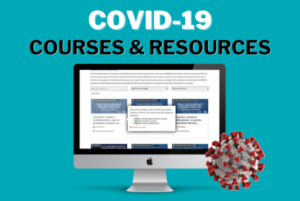
‘Courses & Resources’ for journalists covering COVID-19: A new project from the Knight Center and UNESCO
The COVID-19 Courses & Resources hub features self-directed courses, webinars, briefings and other resources in 13 languages.
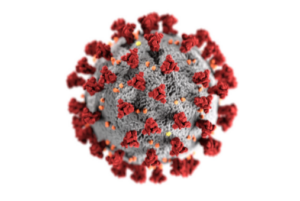
Venezuelan journalists invited to join fact-checking efforts to debunk disinformation around COVID-19
Venezuelan journalists are invited to learn how to use the latest tools to fact-check content and debunk disinformation surrounding the COVID-19 pandemic. The Knight Center for Journalism in the Americas, UNESCO and Medianálisis are offering a webinar on the topic for journalists in the South American country on May 17,
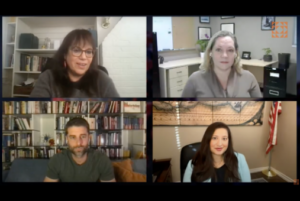
Panelists offer tips for covering COVID-19 mutations and variants
Two years after the start of the pandemic, there is a lot science knows about COVID-19, but there’s also still a lot it doesn’t know. One of the aspects researchers are still grappling with has to do with the evolution of the SARS-CoV-2 virus. How likely are different variants to merge into a new one? What would such a merge mean to the course of the pandemic and to the vaccines we have now?
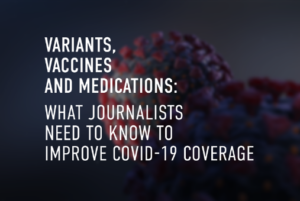
Reporters et scientifiques offrent des clés pour améliorer la couverture du COVID-19 lors d’un webinaire international organisé par le Knight Center, l’UNESCO et l’OMS
Écouté dans 85 pays, un groupe de journalistes scientifiques, chercheur·se·s, et autres expert·e·s de haut niveau ont partagé leurs conseils pour mieux couvrir la pandémie du COVID-19 et lutter contre la désinformation autour des vaccins, variants et traitements.

الصحفيون والعلماء يوضحون كيفية تحسين تغطية كوفيد-19 في ويبنار من قبل مركز نايت واليونسكو ومنظمة الصحة العالمية
شاركت مجموعة رائدة من الصحافيين العلميين والعلماء وخبراء آخرين نصائحها في ويبنار مع الحاضرين من 85 دولة حول كيفية تغطية جائحة كوفيد-19 بشكل أفضل، ومكافحة الأخبار المًضللة المحيطة باللقاحات والمتحورات والأدوية العلاجية

Reporters and scientists point out how to improve coverage of COVID-19 in global webinar by Knight Center, UNESCO and WHO
With attendees from 85 countries, a leading group of science journalists, scientists, and other experts shared tips and advice on how to better cover the COVID-19 pandemic and combat misinformation surrounding vaccines, variants and treatments.
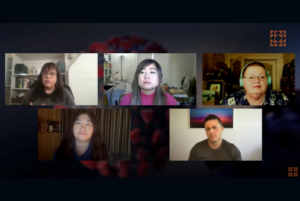
How to deal with disinformation and uncertainty when covering COVID-19
The challenge of covering COVID-19 lies not only in the intrinsic complexity of the pandemic and the evolving nature of the science around the virus. It also comes from the parallel effort journalists have to make to combat widespread disinformation.
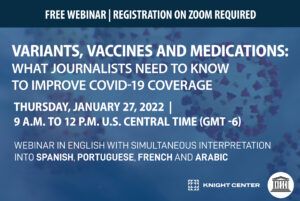
How to improve COVID-19 coverage: Webinar for journalists offered by UNESCO, WHO and Knight Center. Register for free now!
“Variants, vaccines and medications: What journalists need to know to improve COVID-19 coverage” will be held on Thursday, Jan. 27, from 9 a.m. to 12 p.m. U.S. Central Time (GMT -6). It will be live-streamed on Zoom in English, with simultaneous translation to Arabic, French, Spanish and Portuguese.
How journalists can avoid ‘the hype’ when covering COVID-19 developments in Latin America
Both inside and outside of the journalistic world, this excessive promotion and inappropriate exaggerations of the importance or potential value of a particular study, treatment, drug or area of science has a specific name: ‘hype.’
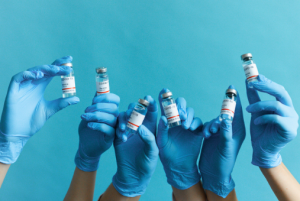
Webinar for journalists covering COVID-19 vaccines now available in 13 languages
Video of the popular webinar offering international perspectives for journalists covering the COVID-19 vaccines is now available in six additional languages, amplifying the number of media practitioners able to benefit from this educational resource offered by the Knight Center for Journalism in the Americas, in collaboration with two United Nations agencies.

